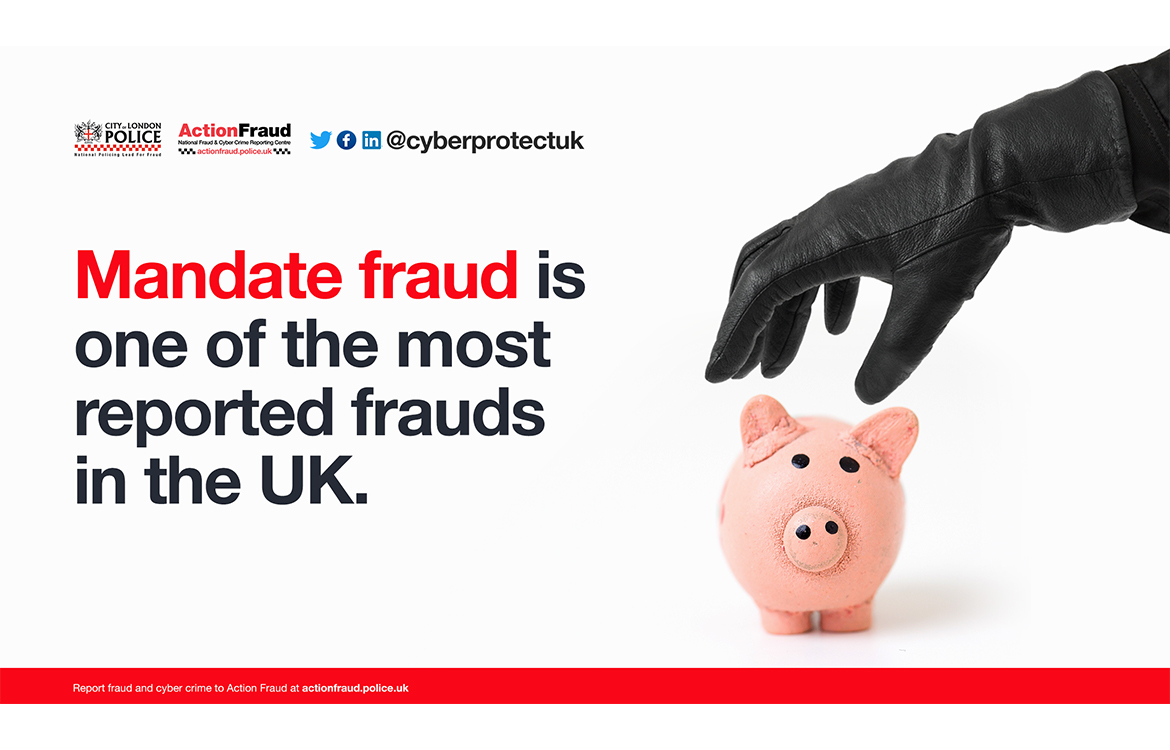Avoid Mandate Fraud
Action Fraud received over 8,000 reports about mandate fraud last year, making it one of the most reported types of fraud.
What is mandate fraud?
Mandate fraud is when criminals trick you into changing a direct debit, standing order or bank transfer mandate, often by purporting to be an organisation you make regular payments to, such as a subscription service or a business supplier. This type of fraud is usually targeted and involves perpetrators gaining knowledge about the victim beforehand in order to make the scam more convincing. For example, an urgent payment request that appears to come from a senior employee within your organisation might coincide with that individual going on leave. Fraudsters piece together lots of small details, such as employee leave details or supplier names, in order to create convincing narratives that carry a higher chance of ensnaring victims.
Between Oct 2017 and Sep 2018, mandate fraud victims lost £160m.
Check it twice or pay the price
There are some simple steps you can take to protect yourself, and your business, from mandate fraud:
- Step one: The most important thing you can do is to verify all invoices and requests to change payment arrangements. You can do that by calling the supplier directly using established contact details you have on file.
- Step two: You should also be mindful of how you manage access to sensitive information. Are financial documents only accessible to those employees that require access? Are you mentioning the names of your suppliers in your social media feeds? Fraudsters can use those details to create highly personalised scams.
- Step three: Finally, you should check your bank transactions regularly. If you notice anything suspicious, you should notify your bank immediately.
If you have been a victim of fraud or cyber crime, report it to Action Fraud at actionfraud.police.uk

